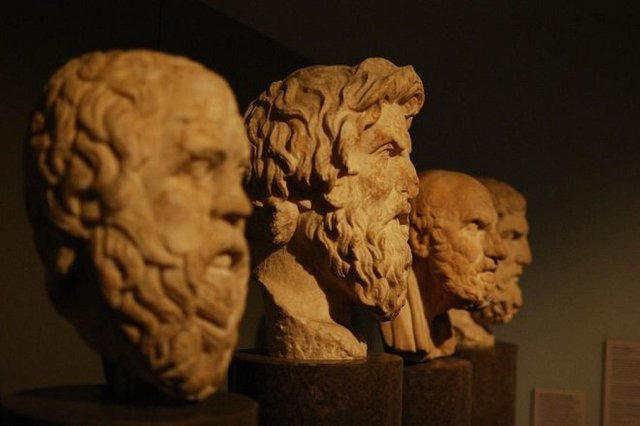Ancient philosophy. Eleatics School - Zenon - the true being is achieved through the mind
The third representative of the Eleatics School is Zenon, born in Elea between the ages of 500 and 430. He was a favorite student of Parmenid. Like him, he participated in public life and served honestly, dishonestly, with high morals. He was on the side of the Eupatrites. He glorified himself with his outer beauty and his eloquence. He was a famous teacher of others. According to some testimonies, he participated in Athens, and according to others he preferred to stay in Elea, but they came from Athens only to listen to him.
The life of Zenon ended tragically. In one failed rebellion, the local tyrant was captured, cruelly tortured, and finally executed, but he behaved manly, not giving his accomplices, and as he was tied up with his hands, biting his tongue and spitting it into the face of the executioner. He died about 430 years ago. His philosophical views, Zenon, set out in a work in a prose. In it, with an astonishing wit, he deflects the enemy's attacks and maintains the basic doctrine of the Elates that the true being achieved through the mind, not through the senses, is one, invariable and eternal. In this respect, he had so much dialectical wisdom that Aristotle called him a discoverer of dialectics. While Parmenid was the profound and unyielding systemic and dogmatic of the Elite School, Zenon is an expert, independent, unsurpassed apologist and fighter. In this respect, his dialectical craving, as well as his personal example as an uncompromising public, was the excuse of all researchers. Parmenid strictly logically asserts that there is no multiplicity or movement of being in the mind, and that they exist only for the senses that perceive the visible, real being. Zenon got to prove it.
For this purpose he uses the methods of the so-called aporia (the Greek word "aporia" - absoluteness, insurmountable difficulty). It is precisely what he points to what insurmountable difficulty makes the assumption that there is multiplicity and movement in the world of true existence. Elena's opponents point out how much difficulty and controversy arises in the mind if denying plurality and movement. It is then impossible to understand the changes and diversity in the world. Zenon takes their opinions and wisely reveals the more difficult the mind faces if we accept these statements as true. "This essay, such words Plato dabs in Zenon's mouth, actually wants to defend Parmenid teachings against those who want to laugh at him and claim that if one is assumed to be one, he falls into many absurd contradictions. My work opposes those who accept the existence of plurality and returns their objections and ridicule to the upper one, showing how much more funny things come from if it is assumed that there is pluralism than if the one is accepted. "/ Plato-" Parmenid "/
As against both the admission of multipleness and the admission of movement into being, Zenon points to four arguments or arguments. He puts them in a dialogical form with questions and answers. That is why Vindelband sees in them the beginning of the future philosophical dialogues that have become so widely used in Plato. Zenon is also believed to have first introduced the hypothesis of science as a deliberate, expedient assumption of the given position, and logically checking his credibility. It is precisely what separates its composition from chapters in which individual assumptions, hypotheses ("hipotesis") have been proved by "reductio ad absurdum ".

You got a 16.32% upvote from @emperorofnaps courtesy of @godflesh!
Want to promote your posts too? Send 0.05+ SBD or STEEM to @emperorofnaps to receive a share of a full upvote every 2.4 hours...Then go relax and take a nap!
Upvoted.